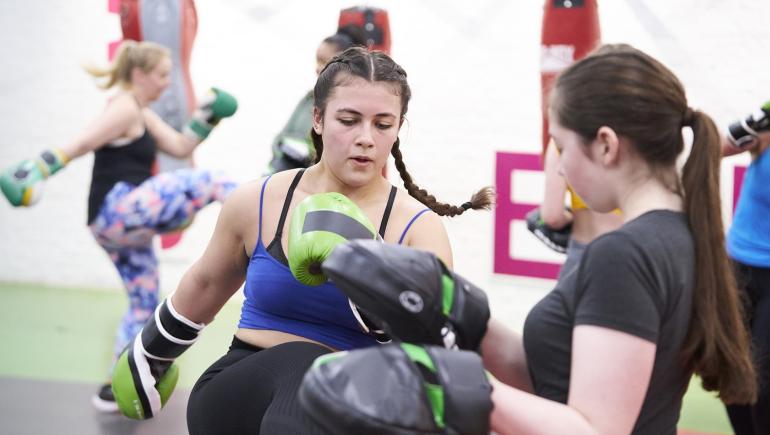Leaders and policy-makers in UK sport were this week urged to look beyond performance and participation, and to focus on what sport can do “for society” throughout 2025 and beyond, in a powerful new blog by former Olympic rower Cath Bishop.
Published by the Guardian to mark the New Year, Cath’s blog focused on the “growing cadre of sportsmen and women working as mentors in support of young people facing challenges and disadvantages” and highlights the work of numerous sport for development charities working in communities across the UK.
This is vital work which ConnectSport CIC seeks to showcase and share year-round. We work with UK Universities to demonstrate how sport and physical activity-based interventions are being used every day in communities to address key policy objectives and sustainable development goals ranging from reduced crime, unemployment and carbon-intensive behaviour to improved mental and physical health and wellbeing, community cohesion and educational attainment.
CONTRIBUTION
In the blog which can be accessed here, Cath states: “As we anticipate what sport will bring us in 2025, we might be tempted to look ahead to the major international tournaments in rugby, cricket and football. But there’s another space to consider, less glamorous but absolutely vital, where sport is making an increasingly significant contribution to society – the growing cadre of sportsmen and women working as mentors in support of young people facing challenges and disadvantages.
“Organisations such as the Dame Kelly Holmes Trust (DKHT), Dallaglio Rugbyworks, Football Beyond Borders and StreetGames use sportsmen and women to provide support, encouragement and a trusted connection for young people trapped in complex adverse situations around the country. Just turning up at a sports session isn’t enough; it’s about creating a relationship with a trusted mentor within that setting.
“Successive governments constantly rediscover that there is no straightforward solution to support those ‘hardest to reach’. Disadvantage and inequality have many different faces. Solutions need to flex for each individual and address multiple issues over a sustained period of time. Sport is no panacea, but as the Centre for Social Justice’s 2023 report “Game Changer” demonstrated, sport’s power is that it can work on multiple levels and bring physical, mental, emotional and social benefits in a single setting. It’s time for current ministers to reread that report to see how sport offers an effective tool for social change.”
CHALLENGES
Cath, who now works as a speaker, consultant, facilitator, leadership and culture coach in business, sport and education, adds: “As ministers look for ways to make Whitehall become more effective and work better cross-departmentally to tackle pressing social challenges, sport is an area that could offer a meaningful way of testing how to work differently across remits for health, education and community building.”
She concludes: “It’s time to think much more about ‘lasting outcomes’ and define greater ambitions for sport.
“This might just be sport’s greatest contribution to the nation this year and one that will outlast the medal and league tables by some considerable way.”
Read the full blog here: ‘Let’s champion our mentors as well as sport’s trophy-winners in 2025’









